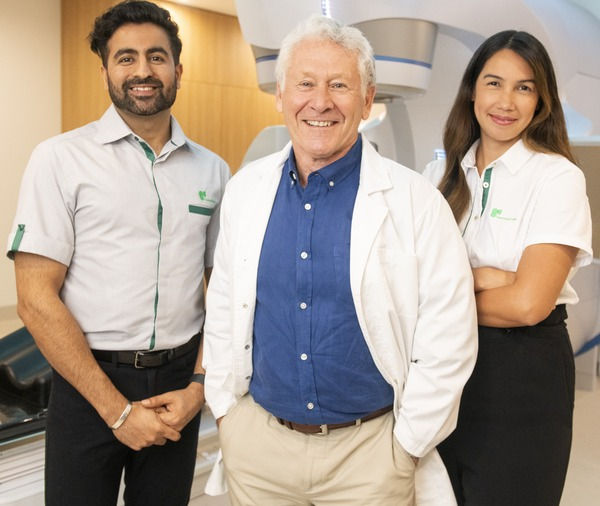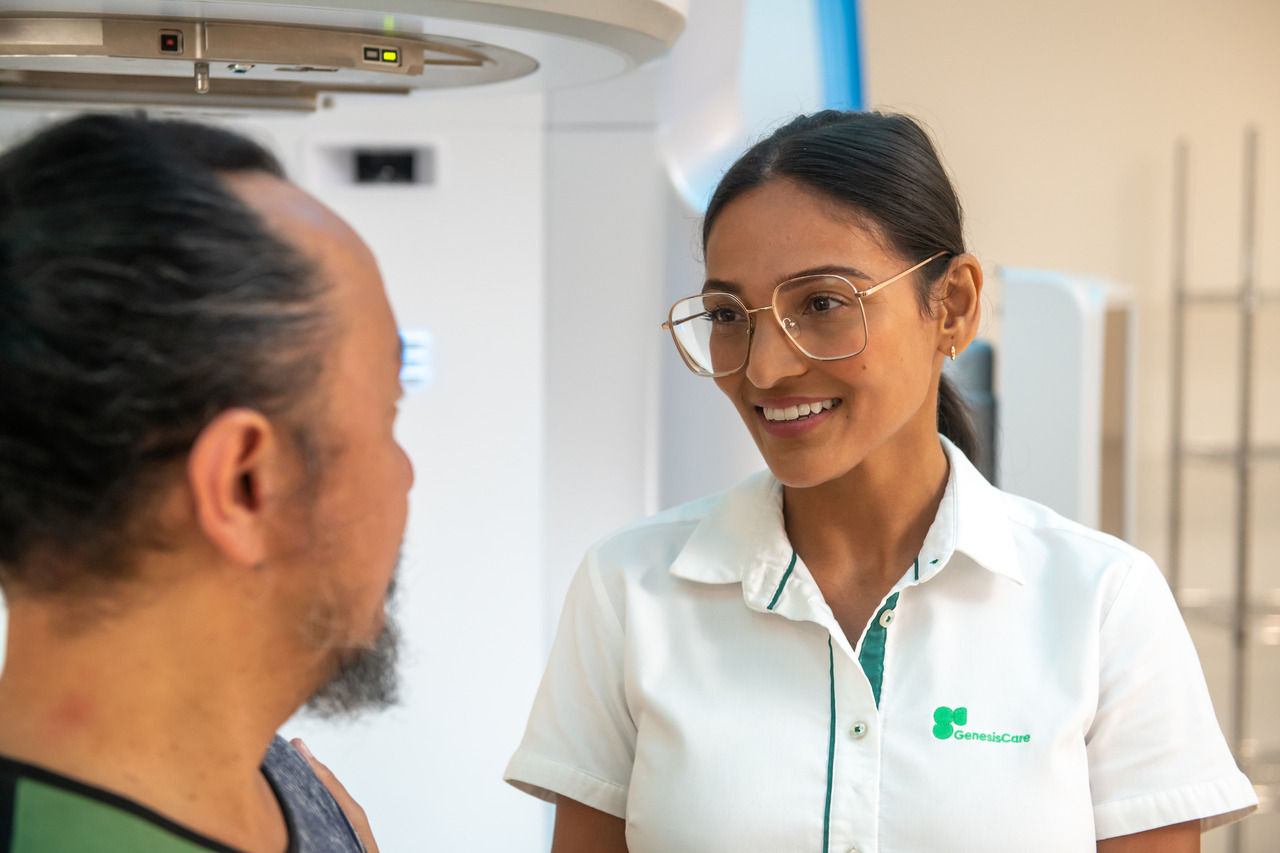Busting myths about radiation therapy for cancer
Radiation therapy is an important treatment for different types of cancer,1 but you may have questions about how and why it’s used – and whether it’s safe for you or your loved ones. We’re here to help with key information about the use of radiation therapy in cancer treatment.
What is radiation therapy?
Radiation therapy – also known as radiotherapy – uses radiation to damage or destroy cancer cells in a particular area of the body. The radiation used during cancer treatment is usually delivered in the form of focused, high-energy x-ray beams.1,2
Cancer cells are more sensitive to radiation therapy than healthy cells, which makes it a useful option for treating cancer while minimising harm to healthy tissue and organs that are nearby.1,2
Myth: radiation therapy is always given as a cancer treatment
FACT: How radiation therapy is used is based on the type, location, and extent of the cancer, as well as patient factors such as age, general health, and personal preferences.1,2 Radiation therapy may be used to attempt to cure the disease or to help relieve symptoms caused by the cancer. It is often used in combination with other treatments including surgery, chemotherapy, hormone therapy, and immunotherapy.
Myth: radiation therapy is a whole body treatment
FACT: Advances in technologies and techniques in recent years have helped clinicians improve the delivery of radiation therapy, helping them to precisely target the areas that require treatment and minimise damage to nearby healthy tissues and organs.2
Treatment with radiation therapy typically begins with an initial consultation between the patient and their radiation oncologist, who will explain specific treatment options, the treatment process itself, as well as potential side effects of the radiation therapy.1
After this consultation, patients attend a computed tomography (CT) simulation appointment. This is a personalised planning session with the radiation therapists, where images are taken to help the radiation oncologist effectively plan the radiation dose as well as determine the best position for the patient’s body during treatment.1
Each radiation therapy treatment session involves the patient being correctly positioned and the radiation being delivered by the machine from different angles. Treatment sessions typically take around 10 to 30 minutes, but the total number of sessions depends on each patient’s personalised treatment plan.1,2
Myth: radiation therapy is dangerous
FACT: As with any cancer treatment, there are benefits and risks with radiation therapy. It is delivered by trained healthcare professionals, with treatment protocols and machines carefully monitored and adjusted to provide quality care. Radiation therapy can be associated with side effects but is only recommended for a particular patient if the likely benefits outweigh potential risks of treatment. Side effects from radiation therapy can depend on many factors related to not only the radiation therapy itself but also to the cancer itself, overall health, and other treatments.
It’s important to remember that everyone responds differently to radiation therapy and that everyone’s experience will be different. Some side effects from radiation therapy can be minimised or managed, so it’s important to check in with the care team regularly to understand what side effects may occur during or after treatment and how to manage them.1,2
At GenesisCare we welcome and encourage you to ask questions at any time. For all patients undergoing radiation therapy, questions about treatment, side effects, and any other general concerns can be addressed to their care team.

Disclaimer
Any medical procedure or treatment involving the use of radiation carries risks, including skin irritation and associated pain. Before proceeding with treatment, you should discuss the risks and benefits of the treatment with an appropriately qualified health practitioner. Individual treatment outcomes and experiences will vary.
- Cancer Council. Understanding Radiation Therapy. December 2021. Available: https://www.cancer.org.au/cancer-information/treatment/radiation-therapy [accessed November 2023].
- Faculty of Radiation Oncology, The Royal Australian and New Zealand College of Radiologists. Radiation Oncology Targeting Cancer [Internet]. Available: https://www.targetingcancer.com.au/ [accessed November 2023].



